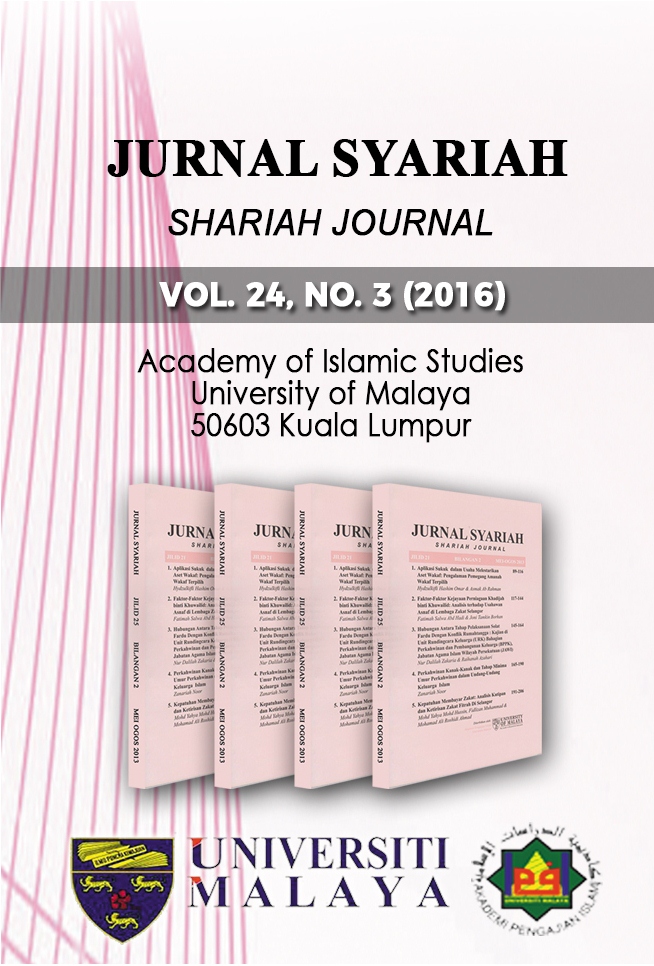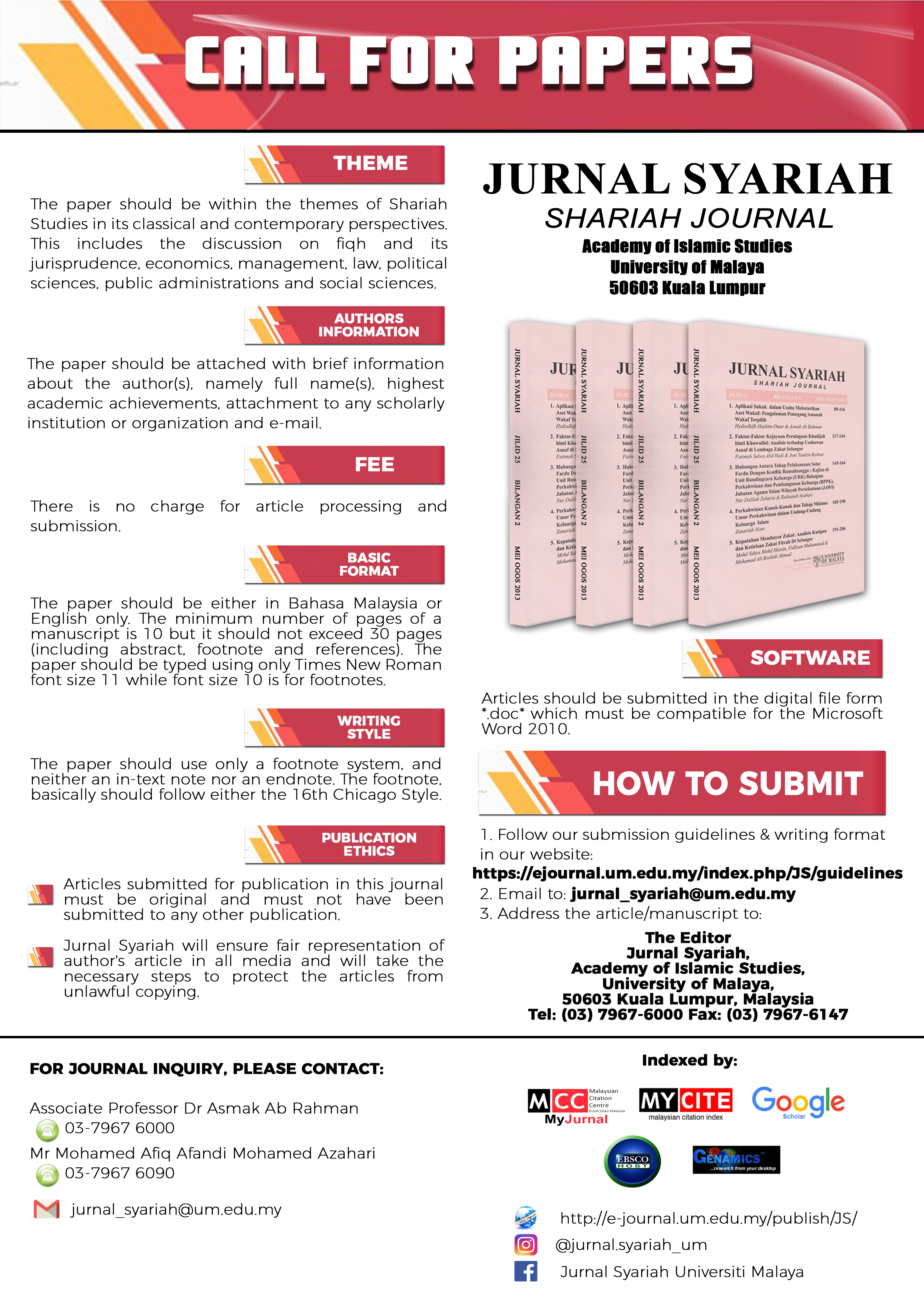EKSPLORASI INDIKATOR DALAM MENENTUKAN FAKIR DAN MISKIN BERDASARKAN HAD AL-KIFAYAH ZAKAT: KAJIAN DI LAMPUNG INDONESIA
Exploring Indicator of Poor and Needy based on Had al-Kifayah Zakah: A Study at Lampung Indonesia
DOI:
https://doi.org/10.22452/js.vol24no3.2Abstract
Ḥad al-kifāyah is a measure used in determining the state of living of an individual along with his/her dependents. An individual who lives below this standard of living is considered poor or destitute and deserves to receive zakah. To determine someone who really deserves zakah, the Zakah Committee of Indonesia in its practice still refers to the normal standard of poverty which is obviously different from the perspective of ḥad al-kifāyah. Hence, the purpose of this research is to objectively identify the standard measurements used in classification of the poor and the needy in Merbau Mataram Indonesia. The data of this study were directly obtained from library research and also interview with 7 informants comprising the Board of Shari’ah experts and the Zakah administrators. This study employed a qualitative data analysis. This study eventually could conclude that the classification of the poor and the needy in Merbau Mataram Indonesia is not fully in accordance with the standard of poverty understood in Islam, particularly the ḥad al-kifāyah method. The result of this study indicates that the classification of the poor and the needy is still based on the state poverty standard. Furthermore, the primary measurement in determining the poor and the needy has yet to consider the importance of educational, health, and livelihood factors which still follows the local state poverty standard.
Downloads
Downloads
Published
How to Cite
Issue
Section
License

This work is licensed under a Creative Commons Attribution-NonCommercial 4.0 International License.
COPYRIGHT: All rights reserved. Not allowed to be reproduced any part of articles and contents of this journal in any form or by any way, whether electronic, mechanical, photocopying, recording or otherwise without permission in writing from the Chief Editor, Jurnal Syariah.



















